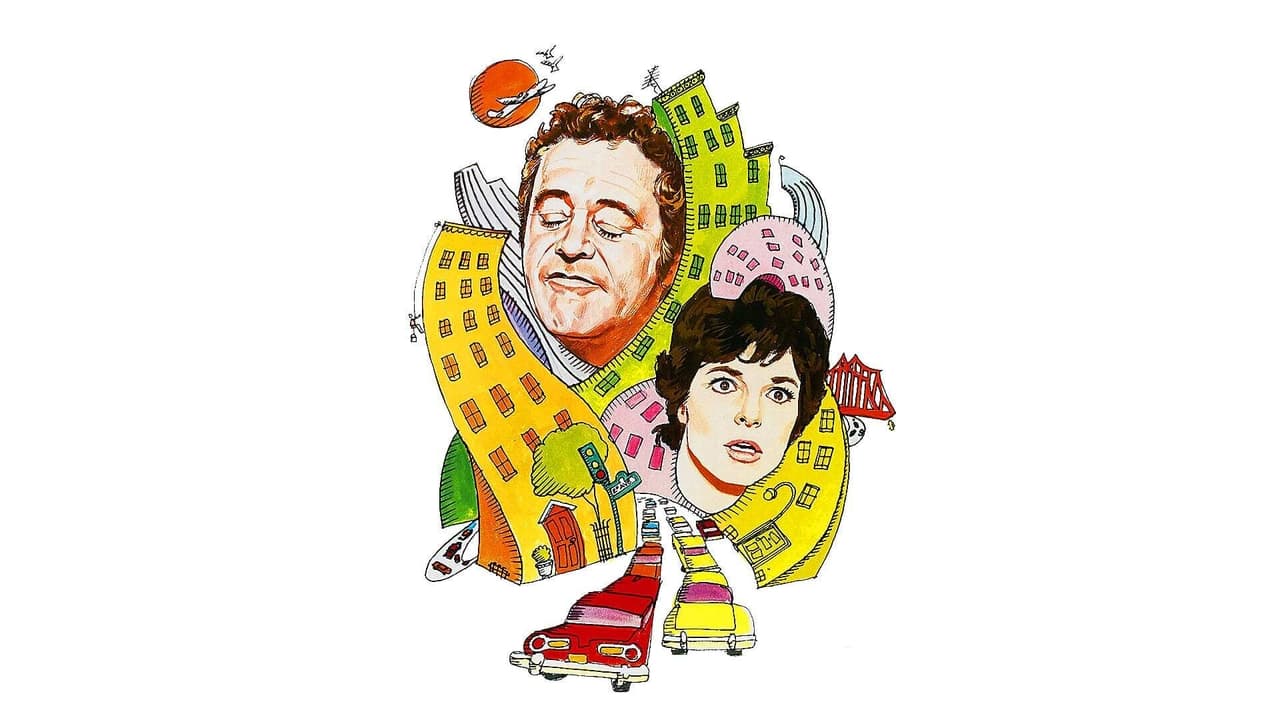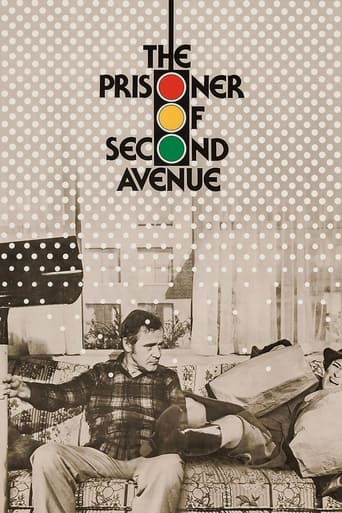

And do remarkably well? She was Annie Sullivan in her Oscar winning performance of "The Miracle Worker". She played a suicidal housewife in "The Slender Thread". She was none other than the iconic Mrs. Robinson, a cold, intimidating Class A "witch" (note the "w" only to beat the censor) in "The Graduate". She portrayed a kindly, compassionate stage diva as grotesquely deformed John Merrick's unflappable, socially connected patron in "The Elephant Man". In "The Prisoner of Second Avenue", Ms. Bancroft comes full circle, this time not only as Edna Edison, a name oddly void of ethnicity, but as close as ever to Anna Maria Italiano, the daughter of a dress cutter from the Bronx. She is as authentic as a 100% born and bred New Yorker and very, very funny.Having just seen the film, I was doing my usual swimming laps today and thought that I would drown when I suddenly started thinking of Edna (Bancroft) trying to explain to her distracted husband (Jack Lemmon) that they had been robbed. Being robbed in real life is a very serious and even traumatic experience, but watching Bancroft explain the situation to a preoccupied Mel in the midst of a destroyed apartment is just plain hilarious, "What does robbed mean? They come in, they take things out. You had 'em, now they got 'em. They used to be yours, now they're theirs. We've been robbed!" Now, that is funny! While Neil Simon could write the lines, who could deliver them as well as Anne Bancroft, who wasn't even widely celebrated for comedy as she was for her much more serious , dramatic roles.Jack Lemmon is also excellent, but we've seen him before as a sympathetic, lovable schlemiel (or is it schlmazel?). Once again, he fulfills our high expectations and never, ever disappoints.I lived through 1975 as a young adult, but I thought that the reporter's periodic voiceover was absolutely terrible to the point of embarrassment. I can't imagine why that nonsense ever survived the cutting room. This film would have been much better without that hogwash, which I didn't find to be funny at all. Bancroft, on the other hand, had me in stitches as a naturally brilliant comedian. Who knew?
... View MoreFor some reason, I only think us New Yorkers would appreciate this movie, but maybe not.Anyone aware of what Manhattan was like in the 1970s will know this movie really nailed it; it terms of location shots, attitudes, Jewish stereotypes, and so on. This was a pre-Koch time in New York (May he rest in peace- he just passed a couple days ago. Great mayor, great person) and city was at the beginning stages of becoming an open sewer.Street scenes will surprise all modern-day Manhattanites; I watched this movie several times, and there's not a single store or shop around then that survives today. (Near 87th & 2nd Ave.) So sad. Jack Lemmon's character was funny, from start to finish, without TRYING to be funny. Always a treat- watch for Sly Stallone as a "mugger."
... View MoreThat moment of Anne Bancroft's is my favorite part of the entire film, often imitated where I used to work.No one loves urban blight like Neil Simon, and no one depicts it as well. "The Prisoner of Second Avenue" goes much further than "The Out of Towners" because now, the leads (Jack Lemmon and Anne Bancroft) are actually living in a New York apartment, sleeping in 12 degree air conditioning in their bedroom during a heat wave and sweating everywhere else. Simon leaves nothing out: not having the right change for the bus, the elevator being out, no water, noisy neighbors, mean neighbors, a cheaply put together building, robberies in broad daylight, etc. Lemmon plays a 22-year veteran of a business who is fired, suffers a nervous breakdown, and goes into psychiatric care. His problems go beyond the loss of his job - he has to cope with his country dwelling brother Harry (Gene Saks) and his two sisters (Elizabeth Wilson and Florence Stanley) who want to help but only succeed in being aggravating. Also, his wife has gone back to work as a production assistant and is never home.This is really a comedy-drama that shows the enormous range of both actors. The beautiful Bancroft is great as an empty nester who tries to be supportive of her husband, who is losing it, as she goes toward the same territory; Lemmon is alternatively a riot, as annoying as Felix Unger, and as sad as his character in "Save the Tiger" while he attempts to work through his issues and find out who he is.With a high rise at Second Avenue and E. 88th St. as a backdrop, "The Prisoner of Second Avenue" is timely today because it takes place during a recession. Suddenly, a lifestyle that wasn't so outrageous to begin with is hard to keep up, and nerves fray.City dwellers won't find it difficult to relate to this film, and today, with jobs cuts and loss of income, nobody will. Lots of fun.
... View MoreMel Edison (Jack Lemmon) and his loving wife Edna (Anne Bancroft) live on Second Avenue in NYC. Mel hates the city and his job and complains nonstop. Edna tries to calm him down. Then Mel is laid off from his job and has a complete nervous breakdown.Sounds like a drama but it's not. It's an adaptation of a Neil Simon play (adapted by Simon himself) and it's more or less a comedy with a very serious edge. The script itself manages to switch gears from comedy to drama pretty effortlessly and great acting by Lemmon and Bancroft keeps it going. There are quite a few people who hate Simons plays. They say the one liners are old and the characters are stale but I'm not one of those people. I happen to think his jokes are quite funny and finds he writes three-dimensional, believable characters. But, if you don't like Simon, this movie won't change your mind. Some people might accuse this of being dated--there was a huge recession going on in the mid 1970s and that is worked in to the plot. But, seeing as we're in another one at the moment, this is very timely. My only complaint is the ending is way too pat to be believable but that's minor. I give it a 7. Look for F. Murray Abraham as a cab driver and Sylvester Stallone.
... View More